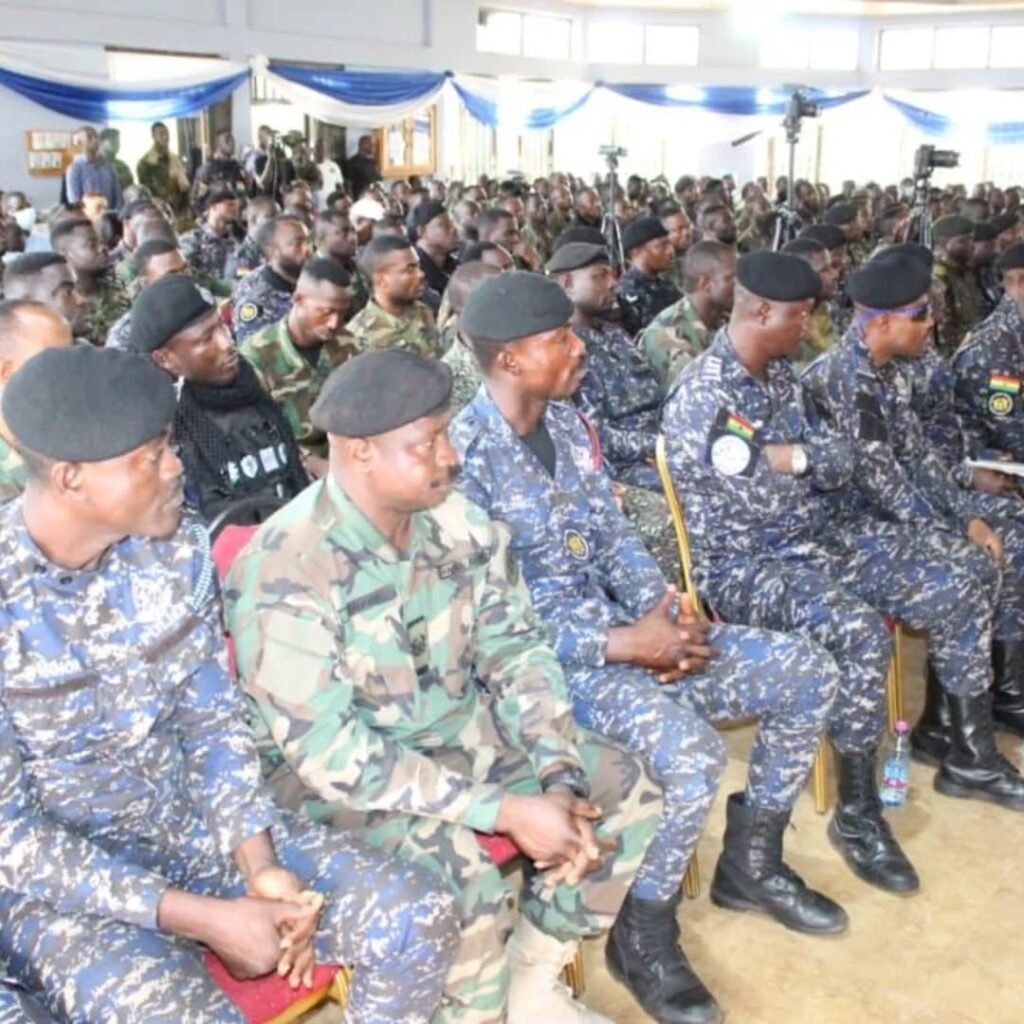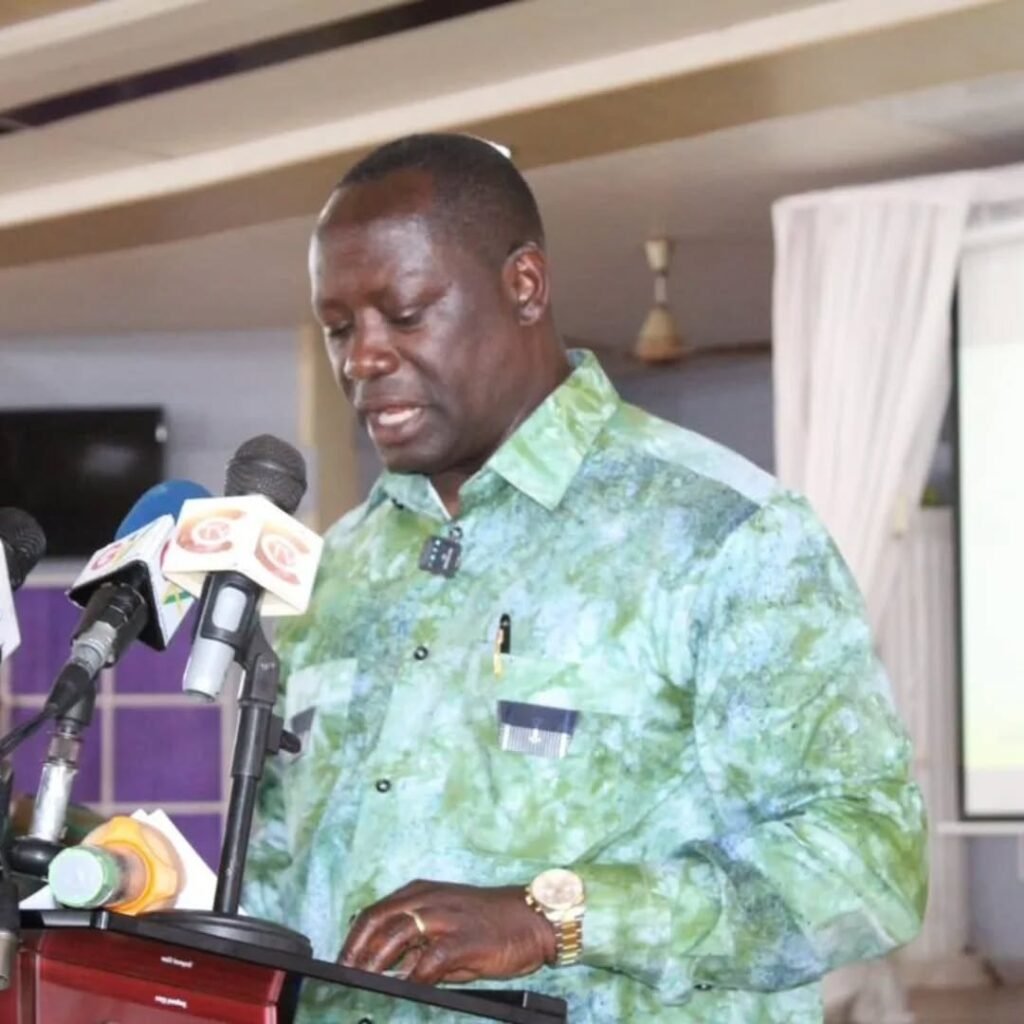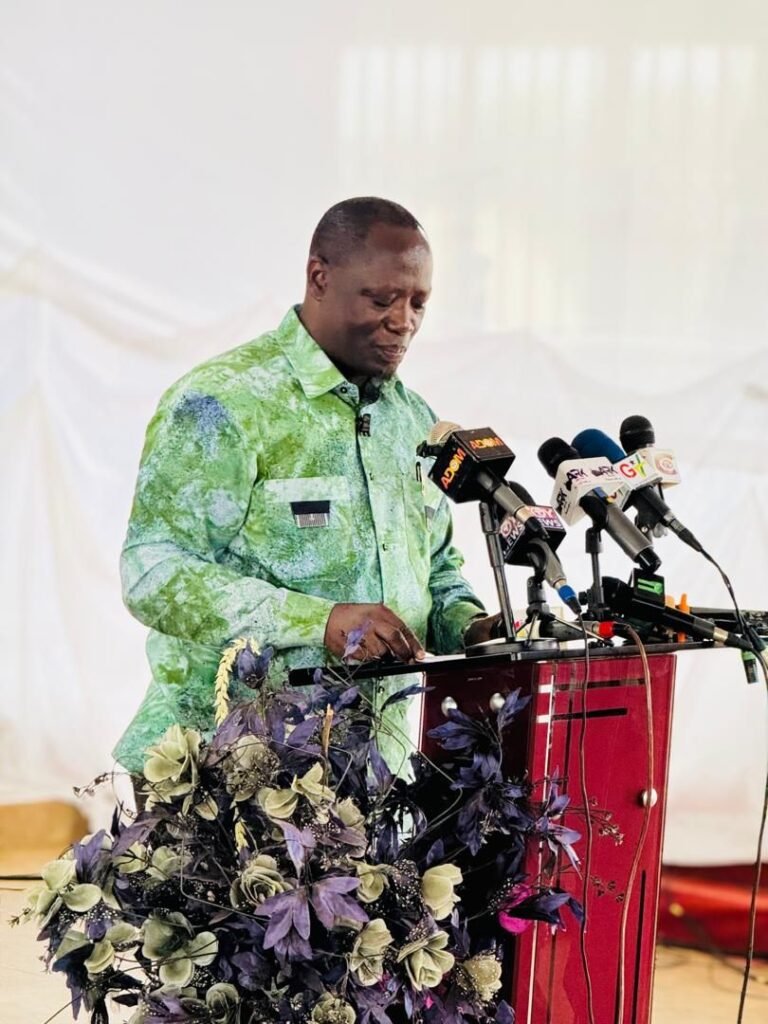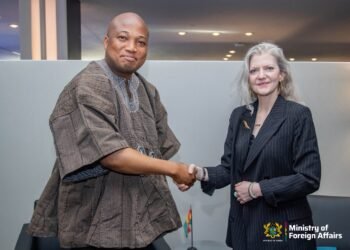The government has declared Ghana’s forests and rivers security zones and ordered a stepped-up, uncompromising campaign against illegal mining, with the Minister for Lands and Natural Resources, Emmanuel Armah-Kofi Buah, charging the National Anti-Illegal Mining Operations Secretariat (NAIMOS) to be “firm, resolute, and ruthless” in enforcement.
The declaration, made at the closing ceremony of a week-long intensive training programme for NAIMOS personnel in Sunyani, signals a hardening of policy as authorities move to protect water bodies and forest reserves from widening environmental destruction.
Speaking at the event, where personnel from the Ghana Army, Police Service, Immigration Service, the National Intelligence Bureau (NIB) and the National Anti-Corruption Coordinating Office (NACOC) trained together, the Minister said the designation of forest reserves and river bodies as security zones means they will be protected “at all costs.”
He commended the taskforce for achievements since NAIMOS’s establishment in June, describing arrests, repossessions and equipment seizures as tangible victories for the nation’s land and water.
“These are not mere statistics. They are victories; victories for our land, for our water, and for our people,” Hon. Armah Kofi Buah said, citing more than a thousand arrests of illegal miners, the repossession of nine previously “no-go” forest reserves, and the confiscation of over 900 water pump machines.
He added that the seized pumps have been handed over to the Ministry of Agriculture “to support farmers with irrigation,” a move intended to redirect resources to productive uses.
The Sunyani exercise was presented as more than routine training; Hon. Armah Kofi Buah framed it as a deliberate effort to sharpen skills, build cohesion, and harmonize operations among security and investigative agencies.

Five-Pronged Strategy to Tackle Illegal Mining
He outlined a five-pronged strategy to tackle illegal mining: strict enforcement, engagement and education, provision of alternative livelihoods, technological innovation, and institutional coordination.
The training modules—covering weapons handling, field craft, improvised explosive device (IED) awareness, and intelligence coordination—were described as necessary preparation for evolving threats in the field.
“You are the sharpened tip of the spear. Any recalcitrant entrant into these declared Security Zones is not merely a trespasser; they are an enemy of the state and are to be treated as such. You are to be firm, resolute, and ruthless against them.”
Minister for Lands and Natural Resources, Emmanuel Armah-Kofi Buah
The Minister emphasized that the crackdown will not be purely punitive. Engagement and education with communities, along with programs to provide alternative livelihoods, are intended to reduce the socio-economic drivers that have pushed many into illegal mining.
The Minister said technological innovation and better institutional coordination will complement boots-on-the-ground enforcement, enabling more precise, intelligence-led operations that limit collateral harm to communities and legitimate economic activity. The presence of diverse security agencies at the training highlighted a whole-of-government approach.

Coordinated operations, officials said, will allow military, police, and intelligence assets to act with clearer legal mandate and operational synergy—particularly important now that forest reserves and rivers have been designated as security zones, a step that confers additional authority to act decisively against illegal miners.
Environmental and civil-society groups have welcomed stronger action against galamsey but repeatedly urged that enforcement be accompanied by transparent processes, respect for human rights, and sustained investment in alternative livelihoods.
The handing over of confiscated irrigation pumps to the Ministry of Agriculture was explicitly framed by the Lands Minister as an example of redirecting resources from destructive activities to support farming and local economies.
Battle far from Over
Hon. Armah Kofi Buah also acknowledged the scale of the challenge and cautioned that the battle is far from over. Rehabilitating degraded land, restoring water quality, and rebuilding affected livelihoods are long-term tasks that require sustained political will and financing.
The Minister’s appeal for institutional coordination, therefore, also included calls for ministries and development partners to prioritize remediation and community support alongside enforcement. NAIMOS leaders and interim commanders at the ceremony pledged to apply the training in the field.

By declaring rivers and forests security zones and committing to a combined strategy of enforcement, community engagement, and technological upgrading, the government has signaled a new phase in Ghana’s fight against illegal mining.
The Minister’s directive that operatives be “firm, resolute, and ruthless” will likely be closely watched by affected communities, environmentalists, and human-rights observers as operations intensify.
For now, the administration frames recent arrests, repossessions and equipment seizures as early successes and a prelude to broader restoration efforts.
But officials concede that the long-term test will be whether coordinated enforcement and investment in alternative livelihoods can reverse environmental damage and prevent a resurgence of illicit activities—objectives the government has said are now national security priorities.
READ ALSO: Africa Must Take Charge of Its Natural Resources – President Mahama Asserts @80UNGA.



















